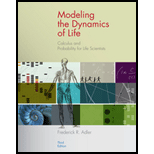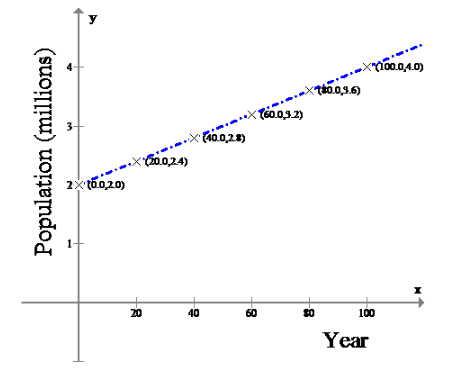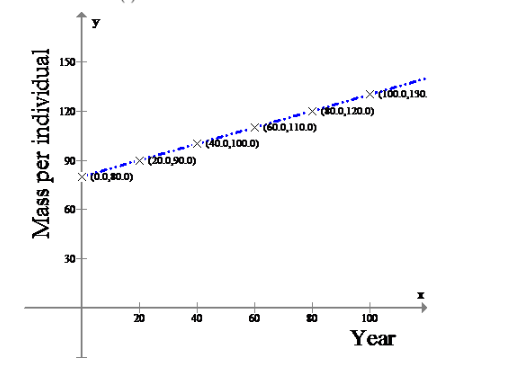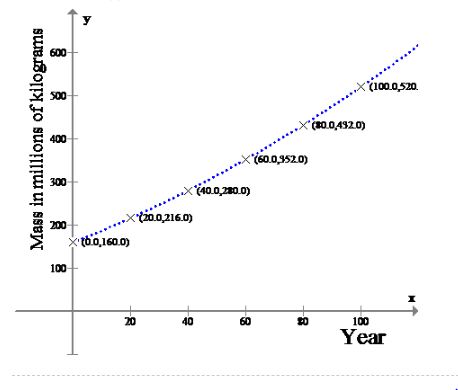
Concept explainers
To find the formula for the total mass, sketch graphs of
Answer to Problem 64E
Hence the graph is drawn and the total mass is
Explanation of Solution
Given information:
The population of people is
The mass per person
Again, the total mass
Hence, the total mass
Calculation:
Now, we need to find the values of
At
At
At
At
At
At
Now, we need to find the values of
At
At
At
At
At
At
Now, we need to find the values of
At
At
At
At
At
At
The graph for

The graph for

The graph for

We can see from the graphs above that the population increases, the mass per individual increases and the total mass also increases.
Want to see more full solutions like this?
Chapter 1 Solutions
Modeling the Dynamics of Life: Calculus and Probability for Life Scientists
- Not use ai pleasearrow_forwardNo chatgpt pls will upvote Already got wrong chatgpt answerarrow_forwardLacy is a single taxpayer. In 2024, her taxable income is $56,000. What is her tax liability in each of the following alternative situations. All of her income is salary from her employer. What is her tax liability?arrow_forward
- N = mg Ö == 6 mL mL - - (Ö sin(0) – ė² cos(0)) 2 - (N) * (µ cos(0) − sin(0)) 12 * g * cos(0) = 12g L + (3 * cos(0)) L mL μ * N = - (Ö cos(0) – 0² sin(0)) 2 Solve for mu in terms of theta, fully simplify (a lot of algebra) should get mu = function(theta)arrow_forwardd)let X be a fin te dimension Vectors Pace over F A and S1, S2 EX S-t SICS Show that if sese for x Szbuse Sorxoknot 2) If Sa is a base for X then siis base ofx or not! 24 Jet M be a proper subset of a linear space then M is ahyper Space if for any text&M X= = {m+at/aEF}arrow_forwardI am confused regarding this question. This is for the math course differential equations.arrow_forward
- Algebra & Trigonometry with Analytic GeometryAlgebraISBN:9781133382119Author:SwokowskiPublisher:Cengage
 Functions and Change: A Modeling Approach to Coll...AlgebraISBN:9781337111348Author:Bruce Crauder, Benny Evans, Alan NoellPublisher:Cengage Learning
Functions and Change: A Modeling Approach to Coll...AlgebraISBN:9781337111348Author:Bruce Crauder, Benny Evans, Alan NoellPublisher:Cengage Learning College AlgebraAlgebraISBN:9781305115545Author:James Stewart, Lothar Redlin, Saleem WatsonPublisher:Cengage Learning
College AlgebraAlgebraISBN:9781305115545Author:James Stewart, Lothar Redlin, Saleem WatsonPublisher:Cengage Learning 

 College Algebra (MindTap Course List)AlgebraISBN:9781305652231Author:R. David Gustafson, Jeff HughesPublisher:Cengage Learning
College Algebra (MindTap Course List)AlgebraISBN:9781305652231Author:R. David Gustafson, Jeff HughesPublisher:Cengage Learning





